Architecture must change beyond recognition to meet the climate challenge

A UWE Bristol professor is one of the experts behind a new campaign by the Royal Institute of British Architects (RIBA), which calls for a radical change across the built environment sector.
Alice Moncaster, Professor of Sustainable Construction at UWE Bristol, is leading the RIBA’s first ‘theme’ in its newly launched horizon-scanning programme, which aims to identify, and importantly propose responses to, the most pertinent environmental issues facing the built environment over the next ten years.
‘RIBA Horizons 2034: The Environmental Challenge’ provides foresight into how the design and construction industry can recognise its responsibility and make informed choices when it comes to mitigating the worst impacts of climate change, adapting buildings to withstand weather extremes, promoting biodiversity and scaling up engagement and activism.
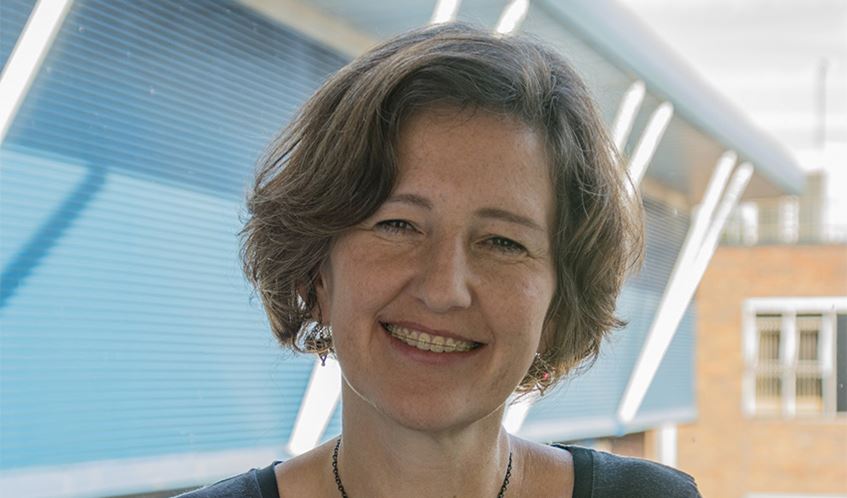
Professor Alice Moncaster said: “The next ten years will be key in our fight against climate change and its worst impacts. We need to radically reduce the impact of our built environment, while ensuring that it is resilient to changing climates and fit for future generations.
“The experts who have written these horizon scans are not talking about simple add-ons to business as usual, but about fundamental paradigm shifts.
“This needs to change every aspect of what we do as architects and building professionals.”
RIBA President Muyiwa Oki said: “As an architect, I know how busy we all are day to day. It can be difficult to get into the headspace to look to the future. But we need to pay attention to what’s coming. The environment, the economy, the global population and technology are all changing.
“While none of the individual issues or actions in these horizon scans come as a surprise, together they indicate the true scale and speed of climate change – and just how much we need to do within the next ten years to mitigate and adapt to its devastating effects.
“We must challenge the status quo and keep engaging and debating. We must think global, act local – recognising the impact of individual actions. We must all become agents of change.
“I urge the profession to see The Environmental Challenge themed scans as a foundation for action.”
Key themes across the scans include:
- The importance of understanding the diversity of different global regions, including in culture, population, existing building stock, climate and materials, to ensure solutions that contribute to a sustainable future for all
- The need for significant financial support for poorer global regions to ensure sustainable and low carbon urban development for rapidly urbanising and growing populations
- Within Europe and older building stocks, the importance of retrofit, and the need to prioritise that over demolition and newbuild
- The increasing importance of designing with inherently low carbon and biobased materials, and of assessing the whole life carbon implications of all design decisions
- The critical role of nature-based solutions in working with and for nature, and of a nature-first approach to design that promotes biodiversity
- The need for inclusion of the whole community in the design process, to ensure socially appropriate development and to avoid green gentrification
- The understanding of the role that building design can play in influencing climate adaptive behaviours
- The need to embrace new attitudes and mindsets, and to work as activists and collaborators to find solutions that work for people and planet
These are the first in a series from RIBA on the four global megatrends that will shape society, the built environment, and the architectural profession over the next ten years. Scans relating to economics, population change, and technological innovation will follow over the coming months.
Related news

15 December 2025
UWE Bristol rises eleven places in People & Planet University League
UWE Bristol has risen to 14th in the People & Planet University League (UK), a jump of eleven places.

12 December 2025
UWE Bristol’s environmentally conscious and student-focused accommodation wins three awards
Purdown View, the world's largest certified Passivhaus student accommodation development, has been recognised at Property Week Student Accommodation Awards.

20 November 2025
UWE Bristol ranked among top 12 per cent of universities globally for sustainability
UWE Bristol has climbed over 400 places in the QS World University Sustainability Rankings 2026, which evaluates universities on a range of environmental and social impacts.

06 November 2025
UWE Bristol welcomes West of England Mayor for annual Green Week
Helen Godwin, Mayor of the West of England, visited UWE Bristol during its annual Green Week to see the sustainability-driven research, innovation and skills initiatives that are helping to power the growth of the region’s green economy.
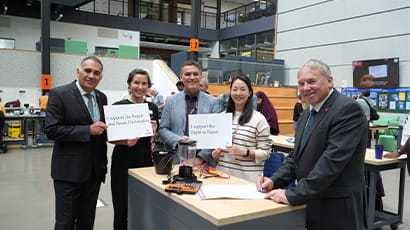
16 October 2025
UWE Bristol signs Repair and Reuse Declaration in commitment to sustainable initiatives
UWE Bristol is the first UK university to sign the Repair and Reuse Declaration as a whole institution, a call to legislators and decision makers to tackle climate change through greater repair and reuse support.

15 October 2025
UK food needs radical transformation on scale not seen since Second World War, new report finds
A new report from the Agri-Food for Net Zero Network+ finds urgent action on food is needed if the UK is to reboot its flagging economy, save the NHS billions, ensure national food security, and meet climate commitments.
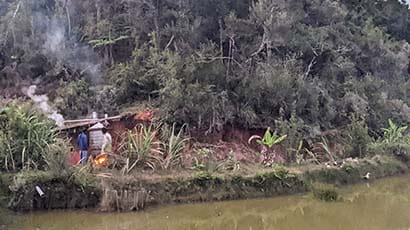
24 September 2025
UWE Bristol to help protect threatened forest in Madagascar in £800k project
UWE Bristol is a partner in a groundbreaking project awarded almost £800,000 in funding to protect one of Madagascar’s most precious and threatened forests.

24 February 2025
WESTbusStop+ makes sustainable travel more convenient
A new WESTbusStop+ bringing together buses and other ways to travel has been officially opened at UWE Bristol’s Frenchay campus.

03 January 2025
Big leap forward for environmentally friendly ‘e-textiles’ technology
Research led by UWE Bristol and the University of Southampton has shown wearable electronic textiles (e-textiles) can be both sustainable and biodegradable.

28 November 2024
Work of UWE Bristol academics features in Government report on air quality measurement
Two UWE Bristol academics have made contributions to an influential Government report on the measurement of air pollution.
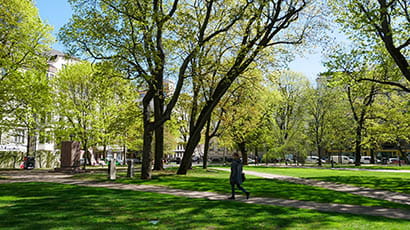
27 November 2024
Traffic noise reduces the stress-relieving benefits of listening to nature, study finds
Road traffic noise reduces the wellbeing benefits associated with spending time listening to nature, researchers have discovered.
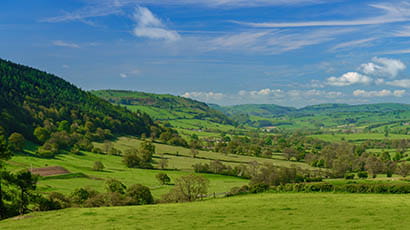
15 November 2024
Grasslands project led by UWE Bristol academic to support UK’s bid for net zero emissions
A UWE Bristol researcher will lead a £4.7 million project focused on the management of UK’s grasslands aimed at supporting efforts to achieve net zero emissions by 2050.
You may also be interested in

Media enquiries
Enquiries related to news releases and press and contacts for the media team.
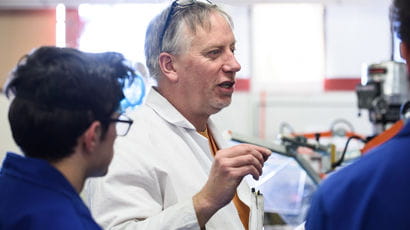
Find an expert
Media contacts are invited to check out the vast range of subjects where UWE Bristol can offer up expert commentary.






